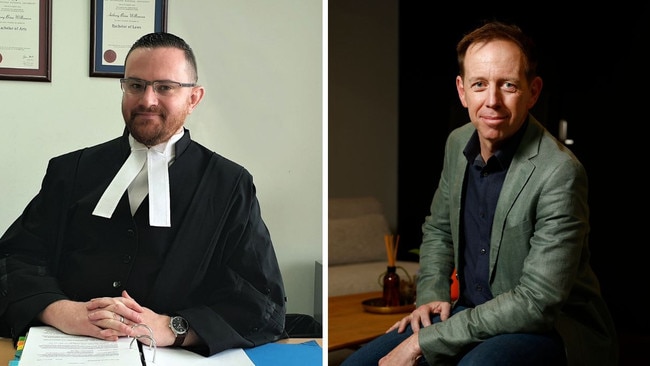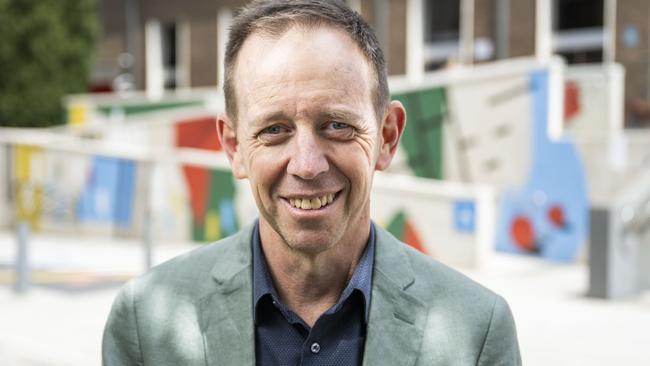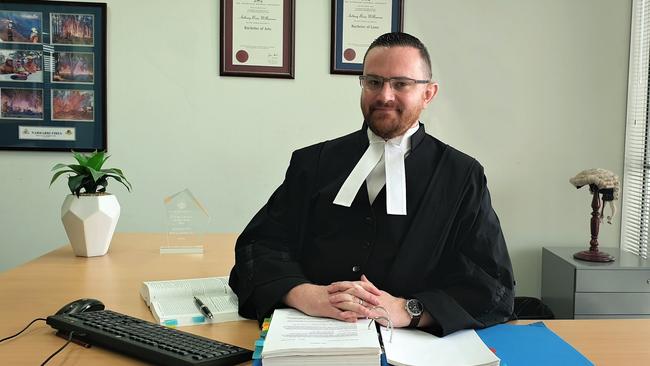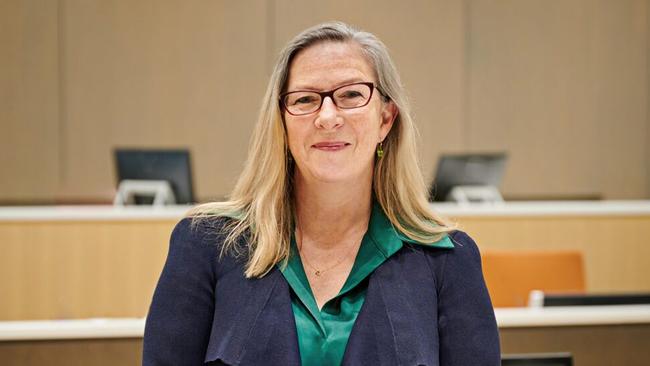
On one side is ACT Greens politician and former attorney-general Shane Rattenbury. Last week he was reported as saying the community has a responsibility to listen to and believe victims of sexual assaults. Given that jurors are drawn from the community, Rattenbury seemed to be telling them to believe complainants who allege sexual assault. Rattenbury said his comments were not inconsistent with a presumption of innocence.
On the other side is a former highly experienced Crown prosecutor who recognises the obvious dangers of this Greens ideology for the presumption of innocence. Anthony Williamson prosecuted crimes, including sex crimes, for 14 years at the ACT Office of the Director of Public Prosecutions. He became acting chief prosecutor after Shane Drumgold resigned in August 2023.
The former Crown prosecutor, who has never spoken to the media about being a prosecutor, was deeply disturbed by Rattenbury’s remarks.

“The proposition advanced by Mr Rattenbury, that victims should be believed, is a dangerous one. Any allegation of sexual offending should be listened to and taken seriously by police. They must always be carefully and thoroughly investigated,” Williamson said on the weekend.
The starting point, he said, “cannot be that the victim is automatically believed. Rather, the starting point should be to carefully and objectively weigh and assess all the available evidence to see what conclusion it leads to”.
Williamson recalled one of the most difficult cases he dealt with during his time as a prosecutor, involving a woman named Sarah Jane Parkinson.
“Ms Parkinson alleged that she was brutally raped by her former fiance, who was employed as a correctional officer. He was arrested and refused bail. As an ACT correctional officer, he was transferred to Goulburn jail, where he was placed on strict protection and locked in a cell for 23 hours a day for months,” he says.
“The difficulty was that at face value, Ms Parkinson’s account was very compelling. She presented as an intelligent and articulate complainant. To begin with, police and prosecutors, including myself, accepted her account hook, line and sinker.”
Williamson says the case started to unravel when a “a new detective from the sexual offences unit – Detective Sergeant Leesa Alexander – joined the investigation. “After a painstaking investigation … she amassed a mountain of forensic evidence which conclusively proved that Ms Parkinson had completely fabricated her account of being raped,” Williamson says.
Parkinson was convicted of making a false rape complaint and sentenced to jail.
“The matter left police and prosecutors, including myself, shocked about how easy it was for a false complaint to progress so far,” Williamson told The Australian.
“It serves as a salutary tale about the dangers of being too quick to simply believe a complainant before a comprehensive investigation has been undertaken.”

The former Crown prosecutor mentioned another case during his time as acting DPP. “Police were able to conclusively prove that a complainant had made a false complaint of being raped. She alleged that the accused followed her into the female toilets in a licensed premises where she was digitally penetrated without her consent. After reviewing the CCTV footage from the premises, detectives ascertained that the accused never entered the toilets and the incident never occurred. When police confronted the complainant with the evidence they had obtained, she admitted that she had lied.”
Williamson says that although false complaints of sexual offending are rare, “false complaints do occur. That is why the presumption of innocence remains such a critical principle that cannot be eroded in any way”.
“I discontinued a number of sexual offence matters where the available evidence, often including video recordings, mobile phone data and evidence from other witnesses, showed that the complainant was simply wrong in their account,” Williamson said. “What they alleged simply did not happen.
“It is particularly rare that a complainant will deliberately lie about being sexually assaulted. More common are false complaints from a complainant who genuinely believes they are the victim of a sexual offence, but are mistaken for a number of reasons including alcohol- or drug-induced intoxication, mental illness, or the contamination of their recollection by others.”
Once the presumption of innocence falls, so does every other principle that underpins the criminal justice system – out goes the burden of proof, that prosecutors prove guilt beyond reasonable doubt. Out goes the right to silence. Out goes cross-examination.
It’s far better that a battle over the presumption of innocence happen in public. If it occurs behind closed doors, ordinary citizens will have little clue about what’s at stake. This battle over the presumption of innocence became public when ACT Chief Justice Lucy McCallum said last month she didn’t understand why “in the 2020s jurors find it so hard to believe allegations of sexual assault”.

In a rare move, the ACT Bar Association publicly rebuked the Chief Justice. Then Rattenbury, who appointed McCallum to be the ACT’s most senior judge in November 2021, came to her defence last week.
His claims are so dangerous that the former Crown prosecutor felt obliged to respond. Williamson also rejected Rattenbury’s claim that defence lawyers perpetuate “rape myths” because it serves the interests of defendants.
“On the contrary, criminal barristers are acutely aware of the trauma that cross-examination in a rape trial can cause to a complainant,” Williamson said in his lengthy rebuttal.
“The cross-examination of a sexual assault complainant is one of the most difficult tasks that barristers are required to undertake. Barristers do their best to walk a fine line between not causing any unnecessary distress, whilst also robustly testing the evidence against their client and putting their client’s case in order to ensure that an innocent person is not wrongfully convicted.
“It’s a terribly difficult line to walk in an adversarial system, and it is a thankless task,”
Three days after Rattenbury’s claim that there is a responsibility to believe those who allege they have been sexually assaulted, the NSW Court of Criminal Appeal overturned a jury verdict of guilt in a rape case. In a rare move, the appeal court substituted an acquittal for a young Chinese student, Shuning Zhao, whom the court found was wrongly convicted of sexual assault.
Justice Natalie Adams, with whom the other appeal judges agreed, said “this is one of those unusual cases” where the jury’s decision should be overturned. The judge pointed to 10 aspects of the woman’s evidence that “have led me to conclude that the jury should have entertained a reasonable doubt”, including evidence that the woman “conflated her complaint of sexual assaults by the applicant with her primary complaint that the applicant did not want a romantic relationship with her”.
“You never spend time with me. I just think you treated me very badly, that’s why I’m causing you big troubles,” the Chinese woman wrote in one message to the defendant.
It’s good news that Greens politician Rattenbury is no longer the ACT’s chief legal officer. Still, the danger remains that his public comments may encourage more false claims of rape and less thorough investigations of evidence by police and prosecutors. The danger is compounded when judges say they don’t understand why juries find it so hard to believe allegations of sexual assault.
As one lawyer who did not wish to be named told The Australian after the Zhao acquittal: “People may well wonder whether Mr Zhao would have got a directed acquittal from an ACT Court of Appeal presided over by Lucy McCallum?”





On the weekend, a former senior Crown prosecutor entered the battle over the presumption of innocence in the ACT. In the matter of Anthony Williamson SC v Shane Rattenbury, you be the judge.